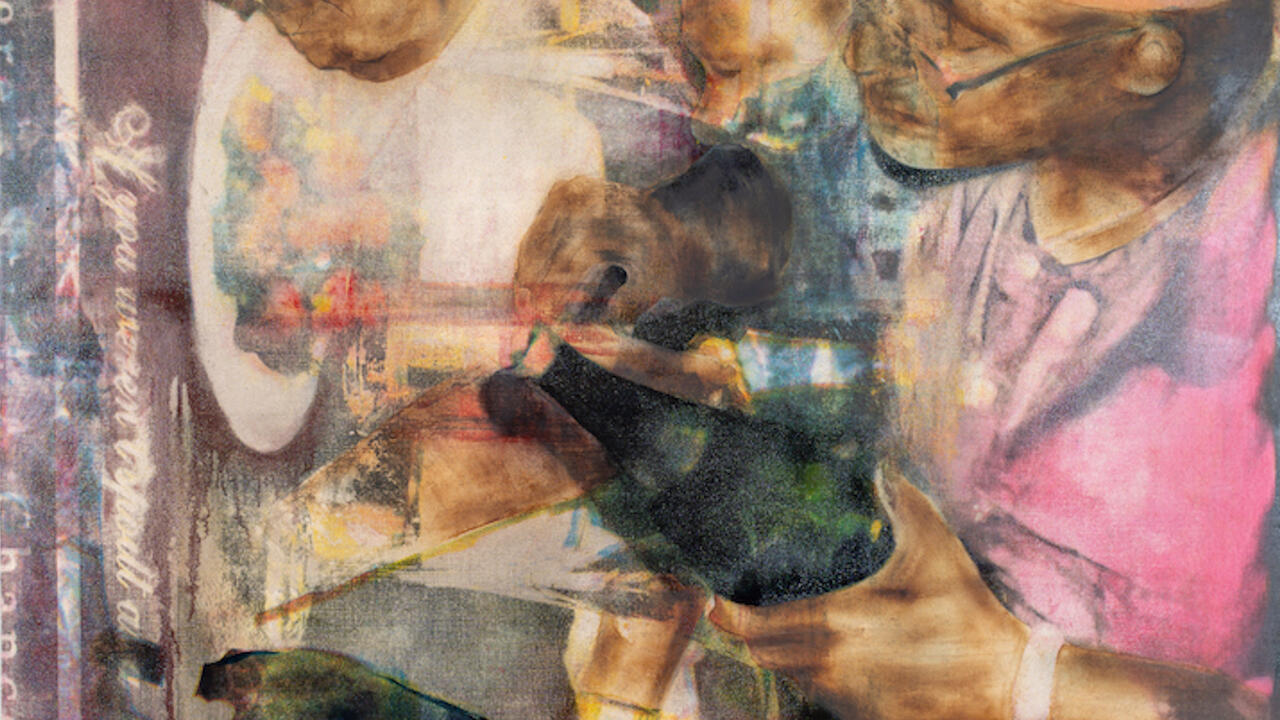Africa Remix

The rise to international prominence of Congolese artist Bodys Isek Kingelez encapsulates the significance of ‘Africa Remix: Contemporary Art of a Continent’ – the largest exhibition of contemporary African art ever seen in Europe. Kingelez’ elevation to Postmodern global artist from being a mask restorer in state museums symbolized the hope of this exhibition’s curators. Simon Njami, the chief curator, left no doubt as to his intentions. This was not to be what he somewhat disparagingly called an ‘ethnographic exhibition’ – no more masks, fetishes and funerary poles. A huge image of Dizzee Rascal stood at the entrance to the Hayward Gallery. Africa is Hip Hop. Africa is so now.
The complete exhibition (an international touring collaboration between four galleries: museum kunst palast in Düsseldorf; the Hayward Gallery; Centre Pompidou, Paris; and the Mori Art Museum in Tokyo), representing 85 artists, was not shown in London, but the sheer size was still overwhelming. More than 60 artists from over 25 countries were represented, many of whom are also living in Europe and North America.
The editor of the Parisian journal La Revue Noire (The Black Review), Njami has long argued for the de-exoticization of African art. A painting by Angolan artist Fernando Alvim entitled We Are All Post-Exotics (2004) made this claim plainly enough. ‘Africa Remix’ is advocacy – it stands as a clear argument for the relevance of African artists and their entry into the global art market. Here we are witness to a corporate re-branding: ‘Africa’ the logo has arrived. Just as Kingelez would have it, from out of Africa comes the image of a happy global future. (I’m reminded of the promoter Don King’s famous poster for the 1974 Muhammad Ali versus George Foreman title fight in Kinshasa – ‘From the Slave Ship to the Championship!’) In the best Thomas Friedman global-speak, Njami and his fellow curators proclaim a new age with shifting co-ordinates – a world of porous boundaries, flexible identities and de-territorializations. The ideological premise of the exhibition is suffocating, and particularly so when Njami calls for a post-ideological art, ‘plugged into world movements’, which rethinks history and remakes human beings as protean, multiple identities. Whenever I hear the words ‘post-ideological’, I know I’m about to get a solid dose of ideology – in this case the ideology of globalization at its purest.
‘Globalization’ is an abstraction that has prevented serious consideration of the major transformations in contemporary state form. It is generally taken to mean a process whereby the nation-state is receding and being surpassed by an open global network. Many, like the curators of this exhibition, have cast this process in a sunny light and recommend ‘plugging in’ to the internationalized capital flows, markets and privatizations of former state institutions. But the state is a long way from disappearing. Rather, as the anthropologist Bruce Kapferer has recently argued, it could be said that the Modernist nation-state is actually merging with globalizing corporate forces and producing a Postmodern corporate state. This is a monstrous hybrid which functions with a lack of concern for previously supported populations – except, of course, as consumers. In many ways the African experience, one in which giant corporations such as the British West Africa Company and the British South Africa Company have often acted as mini-state systems, has prefigured this new corporate-state entity. It might be said that the artists in ‘Africa Remix’ reflect this in all its fluctuating possibility. Like the wildly fragmenting paint in Julie Mehretu’s Ruffian Logistics (2001) or unstitched and re-stitched like Rodney Place’s Three Cities Triptych (2002), the African continent presents a transmuting, transmogrifying system in flux. ‘Africa Remix’ shows us the art of this flux.
Given the realities of what Giovanni Arrighi has called the ‘African tragedy’ – an average life span in sub-Saharan Africa of 49 years, the highest rates of infant mortality in the world, the recent Lord’s Resistance Army massacre in northern Uganda or the increasing number of razor-wire fortresses protecting post-apartheid élites in South Africa – it’s hardly surprising that many of the works in the exhibition show signs of the violence that this newly emerging state form has produced. For example, William Kentridge contributes a shockingly violent animation of torture and uncertain ‘reconciliations’ in South Africa (Ubu Tells the Truth, 1997). As with most of the works in the show, this contrasted sharply with co-curator David Elliott’s happy-clappy ideas about Africa as a ‘rainbow nation’.
Both Jane Alexander’s disturbing installation of monstrous amalgamations and hybrid animal-becomings at the very centre of a colonial power in South Africa (African Adventure, 1999–2002) and Wangechi Mutu’s unnerving collage paintings of monkey-humans, bird-humans, blood, machines and butterflies (A Passing Thought Such Frightening Ape and In Killing Fields Sweet Butterfly Ascend, both 2003) convey a strong sense of the tremendous social conflicts and contortions that continue to shape the African people. A particularly heart-wrenching DVD installation by Ingrid Mwangi (Down by the River, 2001), featuring an image of a blood-filled river, made the little curatorial note about rivers as symbols of continuity and triumph seem amazingly glib. David Goldblatt’s 1999–2003 series of photographs of private estates and the underclass that surrounds them and Willie Bester’s large recycled metal sculpture of a fully armed and smiling policeman with a prowling hell-dog (For Those Left Behind, 2003) are images of an African present perhaps prefiguring the future of metropolitan centres in the West.
Ever since the ravages of colonialism, Africa has been in a continual state of ‘remix’. For centuries now, it has been taken apart, turned upside down, deconstructed and reconstructed. Now, as Nigerian novelist Chinua Achebe once hinted, Africa is the birthplace of globalization’s ‘rough beast.’ Possibly, ‘Africa Remix’ is testament to our global future.














